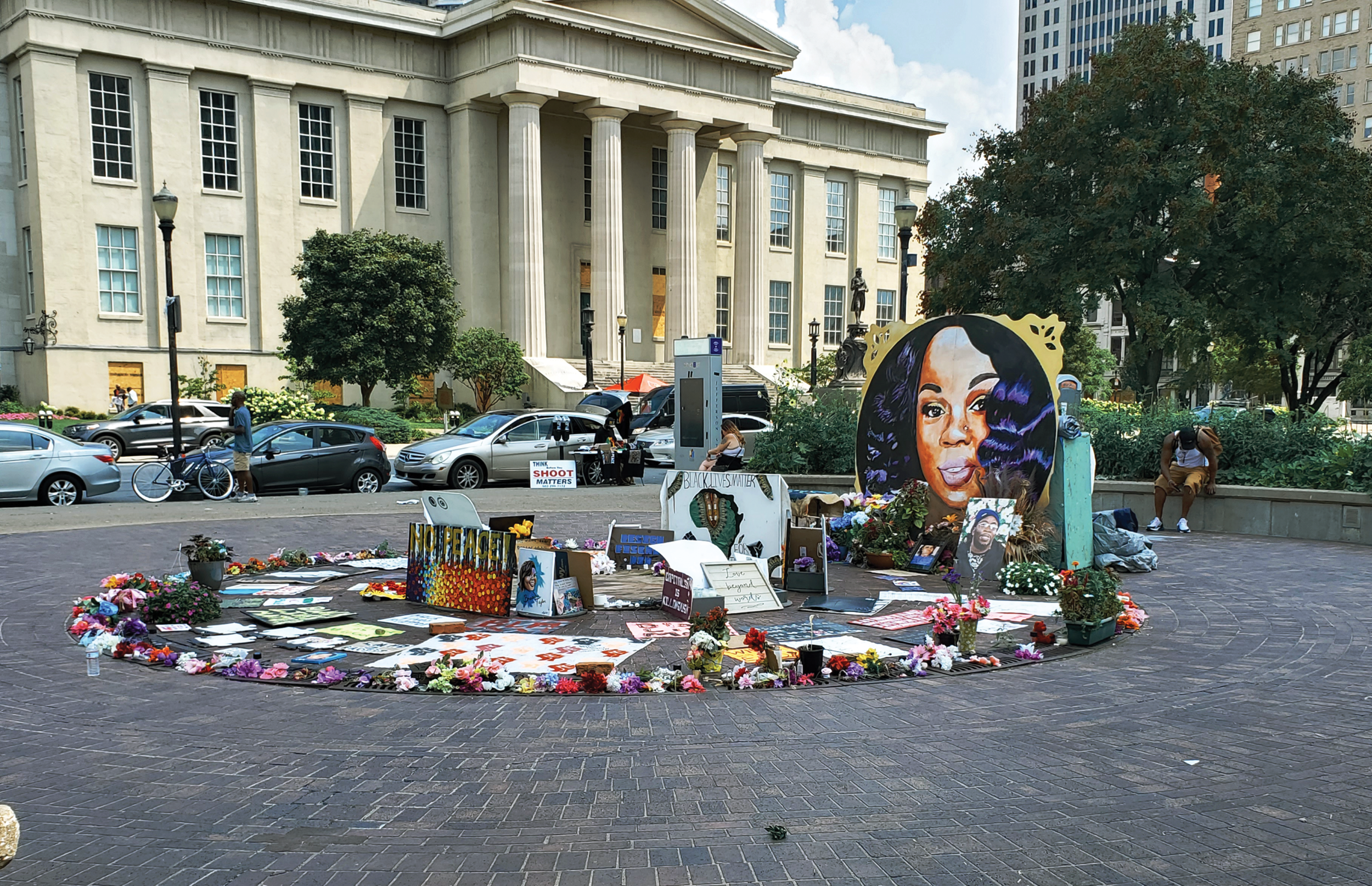‘Playing a game of chance’: Reflections on Breonna Taylor case
Brett Hankison, one of three officers involved in Breonna Taylor’s shooting March 13, was indicted and released on $15,000 bail. The Chapman community mourn over her wrongful death and the case’s decision. WikiCommons
Since March 13, people across the country and around the globe have mourned the death of Breonna Taylor. That grief was only exacerbated when it was announced Sept. 21 that only one of the three officers involved in her shooting, Brett Hankison, was indicted and soon released on a $15,000 cash bond. On Oct. 2, 15 hours of audio recordings from the grand jury was released to publicize the decision process.
“I was disappointed, but not surprised (with the verdict),” said Montez Jennings, a Chapman graduate student and member of Black Student Union.
Chapman sociology professor Hector Martinez expressed he was also not surprised about the indictment. He explained an unjust system of law has been normal to him since he came to the U.S. in the 1980s.
“I lived in a small village in the Dominican Republic, so I never witnessed anything like this there,” Martinez said. “But growing up in New York City, I have personally experienced police harassment and witnessed police brutality. The ‘Central Park Five’ is an example of the injustices of the legal system that happened while I was growing up there.”
On the date of Taylor’s death, three officers issued a no-knock warrant prior to entering her home. In June, the city of Louisville passed a ban on “no-knock” warrants, now called “Breonna’s Law,” after a lawsuit initiated by Taylor’s family. Breonna’s Law requires that police officers keep their body cameras on when executing search warrants. Martinez was disappointed that it took an identifiable victim for social change to be ignited.
“People often need a sign of injustice to point to in order for everyone to get behind the cause,” Martinez said.
Jennings has been vulnerable in discussing her feelings about the situation to her friends and family.
“I recently wrote a set of instructions to my friend about what she should do and how I would like for her to react if I was ever shot by the police,” Jennings said. “I’m playing a game of chance when I leave my house.”
The city of Louisville also agreed to a $12 million settlement with the Taylor family in September over a wrongful death lawsuit. However, Martinez said no amount of money could bring Taylor back to her family or end the collective post-traumatic stress disorder Black communities are experiencing.
In addition to the settlement, the city agreed to several police reforms, which include a housing credit program to incentivize officers to live in low-income neighborhoods and bi-weekly community service. Jennings told The Panther the reforms are not founded properly and give off an appearance that living in these communities is a “type of prison sentence or punishment.”
“People already get harassed in our neighborhoods; we don’t need police officers living next door to us,” Jennings said. “Living in our communities will only strengthen the biases officers already have towards Black and Brown people.”
For allies who are feeling lost, but want to support Black communities, Jennings emphasized the importance of taking the energy put into protesting back into white communities.
“Allies need to educate themselves,” Jennings said. “It’s exhausting and emotionally draining to have to constantly see Black people die and police officers abuse their power in Black and Brown communities.”

